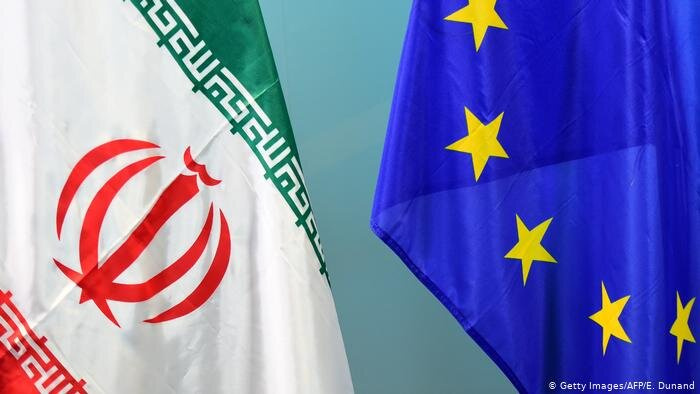Dr. Bahrad Nakhai: Iran Only Party Fulfilling Obligations to JCPOA

Bahrad Nakhai, nuclear scientist, says the US violated UNSC resolution 2231 by leaving the Joint Comprehensive Plan of Action (JCPOA), and France, Germany, Britain, Russia, and China have given lip service but no action, making Iran the only party to adhere to the accord.
In an exclusive interview with FNA, Dr. Nakhai said there are some grounds for Iran to leave the nuclear deal, “yet it is best for Iran to continue to adhere to its obligations. Iran’s original peaceful nuclear program is unaffected and can continue as was intended… . Having failed all other options -- including terrorism, sanctions, and spread of computer viruses -- the West came to the negotiating table as the last resort and as a face saving measure. Continued peaceful nuclear path under IAEA monitoring, would deprive the West to fulfill its ulterior motives.”
Behrad Nakhai, Nuclear scientist, obtained his PhD from the University of Tennessee. He is a member of Public Policy Committee, NPT group and Speaker Bureau of the American Nuclear Society (ANS).
Below is the full text of the interview:
Q: The IAEA has repeatedly confirmed Iran’s compliance with the nuclear deal in all the sections. Still, the West has been accusing Iran of seeking atomic weapons. How valid are such allegations; is there any other move left for Iran to ensure the West it is not after nuclear weapons?
A: UNSC Resolution 2231, has given the IAEA the authority to inspect and report Iran’s nuclear activities. If any other entity discovers any discrepancies, it should report its findings to IAEA to initiate an investigation. So far, IAEA has received no accusations of violation by Iran, and has repeatedly reported that Iran has met its UNSC Resolution 2231 obligations. But why the baseless accusations of Iran seeking atomic weapon persists. The main objective may be to portray Iran as a security threat and force Iran into a defensing mode. Suffice to say that the black box called “Nuclear Weapons Program” would have been given another eye-catching label to serve those ulterior motives, if Iran did not have any nuclear program. Furthermore, the accusations will persist even if Iran end all its nuclear activities and have it fully verified by IAEA. There is nothing Iran can do to address these accusations, therefore it is best for Iran to continue its peaceful nuclear program under the daily monitor of IAEA, and continue to comply with its UNSC Resolution 2231 commitments.
Q: How do you see Tehran’s decision to edge to the JCPOA’s limits? Does that make the US get back to the 2015 nuclear agreement?
A: Iran is the only party to the JCPOA which has so far fulfilled its obligations. All other partners have not met their UNSC commitments — France, Germany, Britain, Russia, and China have given lip service but no action — or have violated their commitments — US violated UNSC resolution by leaving JCPOA, although even in its best days, US never adhered to its UNSC obligations. Although Iran is justified to end its UNSC commitments — as the other parties have already done — it is best for Iran to continue to adhere to its obligations. Iran’s original peaceful nuclear program is unaffected and can continue as was intended. The limits placed by JCPOA should not hamper Iran’s progress in advancing its nuclear program. It must be noted that the excessive yet peaceful and legal nuclear activities before the JCPOA were designed to bring the West to the negotiating table, which Iran achieved its objective. Having failed all other options — including terrorism, sanctions, and spread of computer viruses — the West came to the negotiating table as the last resort and as a face saving measure. Continued peaceful nuclear path under IAEA monitoring, would deprive the West to fulfill its ulterior motives, mentioned above.
Q: Trump once called Iranians a “terrorist nation”; in only 2 days he softened tone to say that he does not seek regime change in Iran, and admired Iranians. He tears up the JCPOA, but claims he would like to negotiate a new deal with Iran. How do you view Trump’s inconsistent Iran policies?
A: Iran has already negotiated with US under the watchful eye of the UNSC. Any further negotiations must be based on fulfillment of JCPOA obligations. President Trump has a base who have voted him into office. He has made promises to his base that he must fulfill. One of his promises was pulling out of the JCPOA, and he did that without respect for the UN and the importance of fulfilling US commitments. President Trump had hoped to coerce Iran into submission and impose the terms of a new nuclear agreement on Iran. To achieve his goal, he attacked Iran financially by instituting sanctions and threatening any other nations not obeying his wishes. He is now following his “The Art of the deal” prescription by showing a softer side — the same pattern that he used with North Korea. It hasn’t worked with North Korea, and will certainly not work with Iran. President Trump believes that the same tactics that he used in his real estate deals can be applied to the international political discourse. So far, he has failed miserably.
Source: Fars

